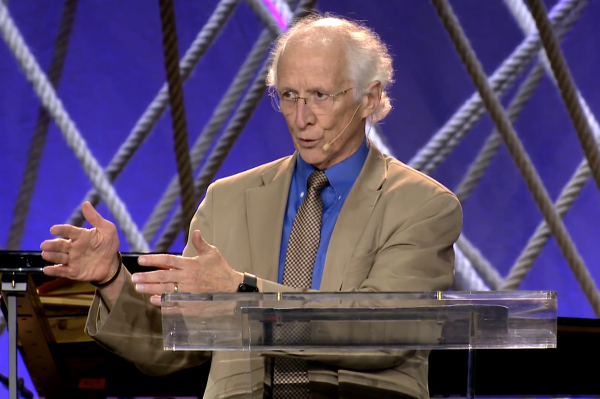Thinking the 'Emergent Church' Was Ineffective? Think Again

Brian McLaren is right. The "emergent church" movement is growing. Not as a collective group, but as a savvy, scattered chain ever-present in the fiber of the Church.
The backstory of the emergent church started in the late 1990s and early 2000s when a group of postmodern Christians found popularity emphasizing leftist political agendas over traditional Christian teaching and absolute truths.
In a recent column titled, "More on the Emergent Conversation" McLaren, a founding member of the emergent movement, wrote:
The conversation continues to grow, not by creating a new slice of the pie, but by seasoning nearly all sectors of the pie. Even where the word "emergent" is not used, ideas from emergence leaders are being considered and adopted, leading to new experimentation and openness.
Much of the Mainline Protestant world has opened its arms wide to the emergent conversation, from bishops to parachurch organizations to denominational leaders to local pastors to grass-roots activists.
America's Founding Father James Madison wrote, "I believe there are more instances of the abridgement of the freedom of the people by gradual and silent encroachments of those in power, than by violent and sudden usurpations." Similarly, gradual and silent are emergent movement strategies. It is working. How do I know? One word: Millennials.
In McLaren's blog he noted the emergent's target of youth, writing, "Key next steps may include the creation of a national, trans-denominational campus ministry, collaborative and transdenominational church planting and "branding," new approaches to theological and ministry education, and the development of a new genre of progressive Christian worship music."
Already, the emergent church has taken shape in historically faithful Evangelical communities as youth ministry lay leaders and lay leaders, pastors, and high-profile seminary and Christian college professors and Millennials in the Church are caught in the crosshairs.
Just consider for one moment the shifting worldview of today's young Evangelicals. A 2014 Public Religion Research Institute survey found that 43 percent of young Evangelical Protestants support same-sex marriage. According to Relevant magazine, nearly 80 percent of born-again Millennials have had sex and 2/3 have been active in the last year. Even more worrisome is that The Christian Post reported that 1 in 3 Evangelical young people do not believe Jesus Christ is the only path to God.
How did this happen? Conservative Christians were looking out for liberal slogans and screaming emergent creeds. Oh no, the emergent movement was much more clever. While they will not always confess to be emergent, some will identify as part of the evangelical left or religious left. Some more prefer labels like progressive Christian. But theologically speaking, they are very much the same. There are no pronounced liberal political efforts on the surface, and often times come in the sympathetic name of "peace" and "tolerance."
Dan Kimball was another founding member of the emergent movement, but he recognized the unorthodox mission and left the fold. Now the author of They Like Jesus but Not the Church: Insights from Emerging Generations, Kimball shared with Relevant magazine, "When the whole emerging church discussion began, it was primarily about evangelism and mission to emerging generations…That's why I got into it, and it was fun and a thrill to be part of."
"A lot of the things discussed and then even becoming beliefs is pretty liberal theology," said Kimball who also notes the emergent's target of Millennials. "My concern is seeing younger Christians especially who don't know these theological issues were discussed before and the results of the discussions throughout Church history get caught up in thinking this is a new expression of Christianity when it is pretty much classical extreme liberalism in a new, cooler wrapper."






















